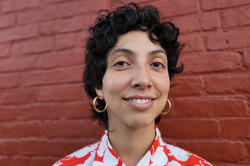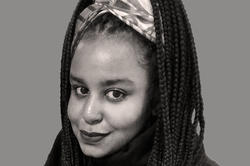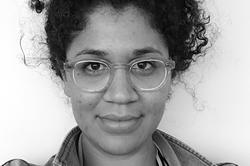A brief interview with one of RISD’s Schiller Family Assistant Professors in Race in Art and Design.
Five Questions: Africanus Okokon
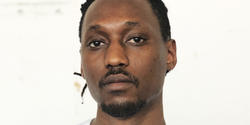
Last year RISD hired a second cohort of full-time faculty members focused on race, colonization, decolonization, post-coloniality, cultural representation and material practices of resistance as part of the “Race in Art & Design” initiative. The educators who joined the community as a result began teaching at RISD in the fall and have graciously agreed to share their unique pedagogical approaches in this series of Q&As. In this interview, we hear from Assistant Professor Africanus Okokon 13 FAV, who teaches in the Film/Animation/Video department.
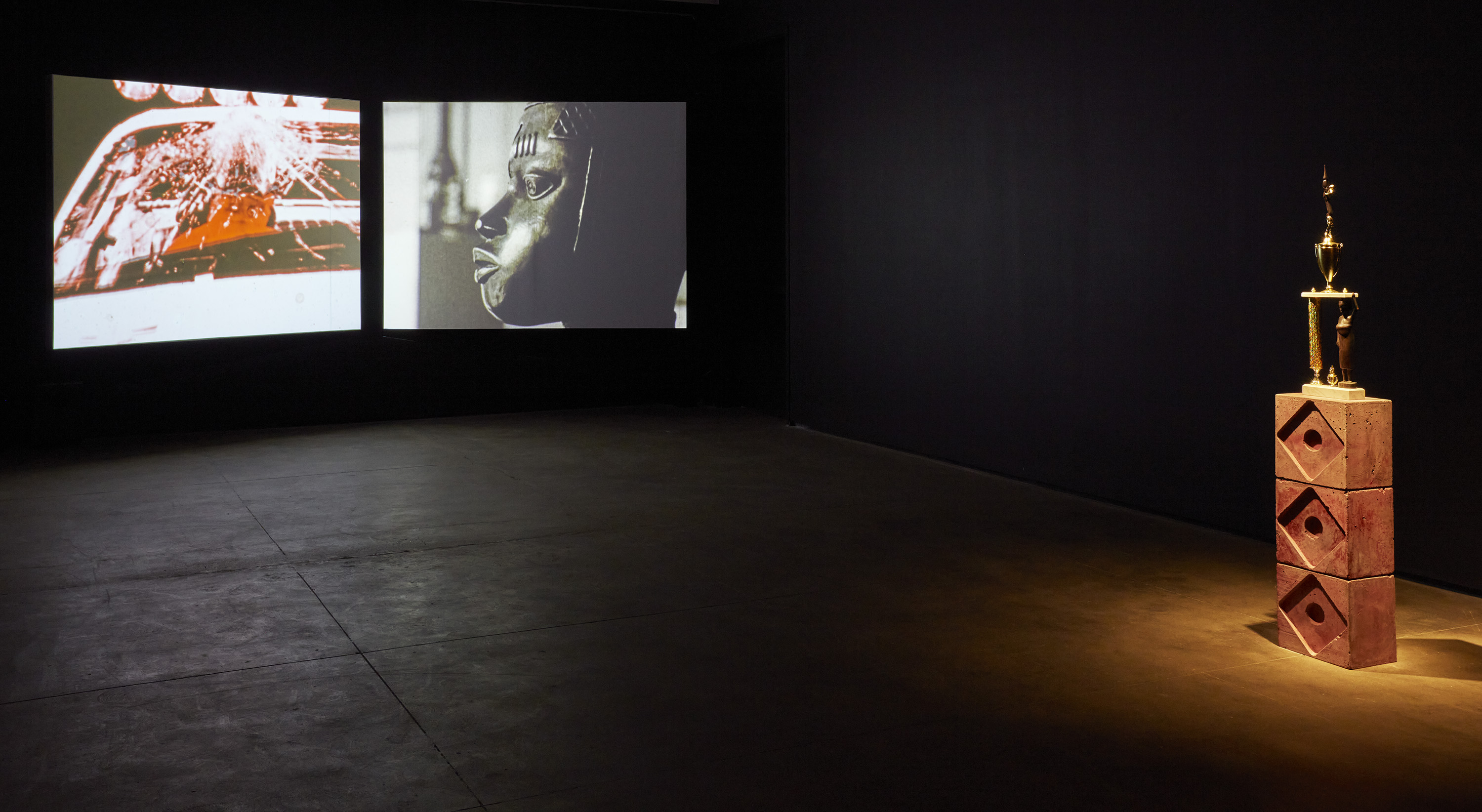
Please tell us a little bit about yourself and your areas of academic focus.
I grew up in the Midwest and was born to west African immigrants from Ghana and Nigeria. That distant-but-close connection to the continent has deeply informed my creative practice and research, and much of my work deals with forgetting, memory, haunting, media and remediation. The work is interdisciplinary, but all of it—whether it takes the shape of painting, assemblage, sound or performance—is informed by the moving image, concepts in animation, the space of the frame and montage strategies.
“I am a graduate of the FAV program, and the lessons I learned at RISD continue to inform my approach to making and how I think.”
What attracted you to RISD?
I am a graduate of the FAV program, and the lessons I learned at RISD continue to inform my approach to making and how I think. Since graduating, I have returned several times as a guest critic, and the students blew me away and left me feeling inspired. They reminded me why so many people, including myself, believe this place is special.
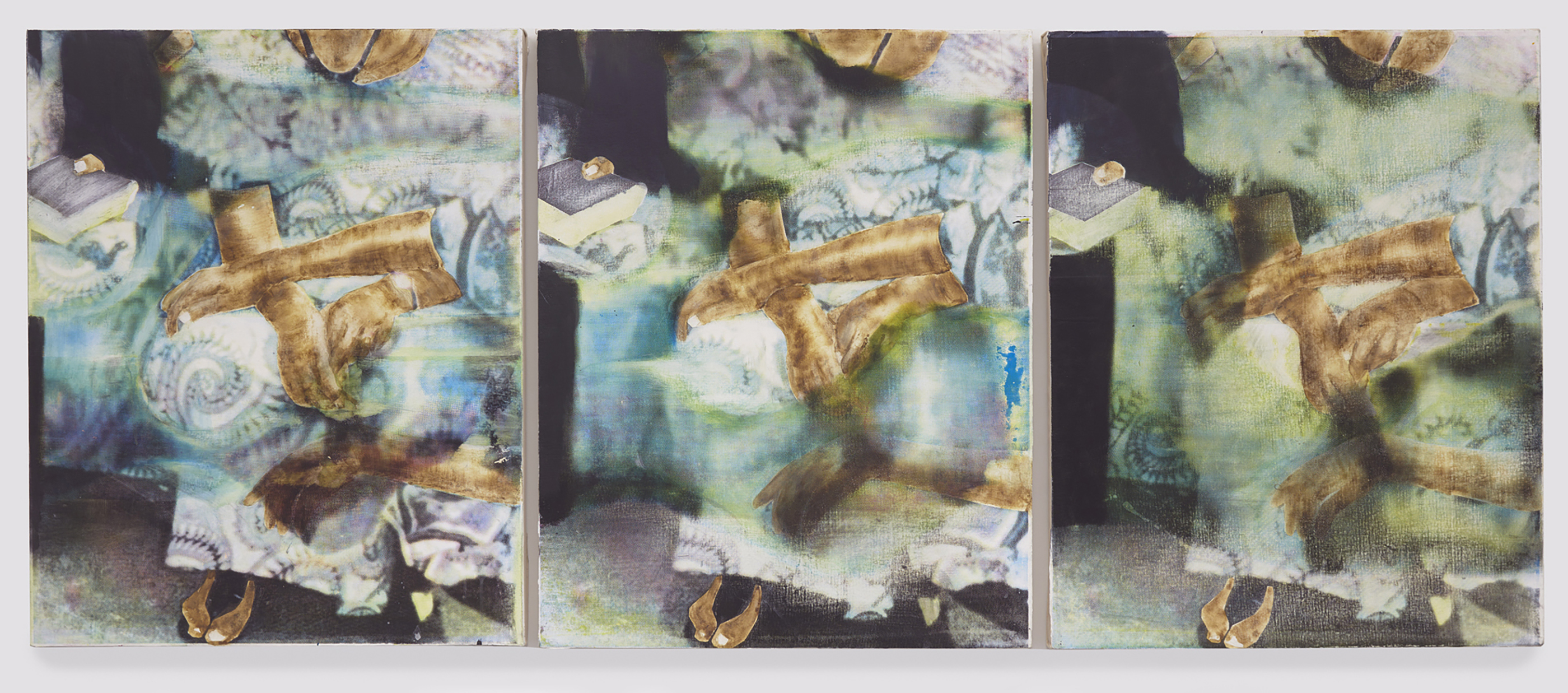
Can you tell me about your 2022–23 courses? How does your personal research/creative practice play into your teaching?
I’m teaching a sophomore-level video course this year and several open media courses, at the undergrad and graduate levels. Open media is unique to RISD’s Film/Animation/Video program. It isn’t a defined discipline or group of disciplines and works very much against genre—which is something I value and consider central to my creative practice. Sometimes an artwork asks to be a painting, a film, a sculpture or something in-between. I let the work guide me in selecting what form to give it.
Students working in open media at RISD use time-based art and cinema as a point of departure, but their work takes the shape of whatever media they are using time to think through. What links the FAV students in open media is their experimental examination of movement and time. It is inspiring to see students approaching modes that are new and unfamiliar with a cinematic, time-based or sequential eye, alongside a film, animation or video practice.
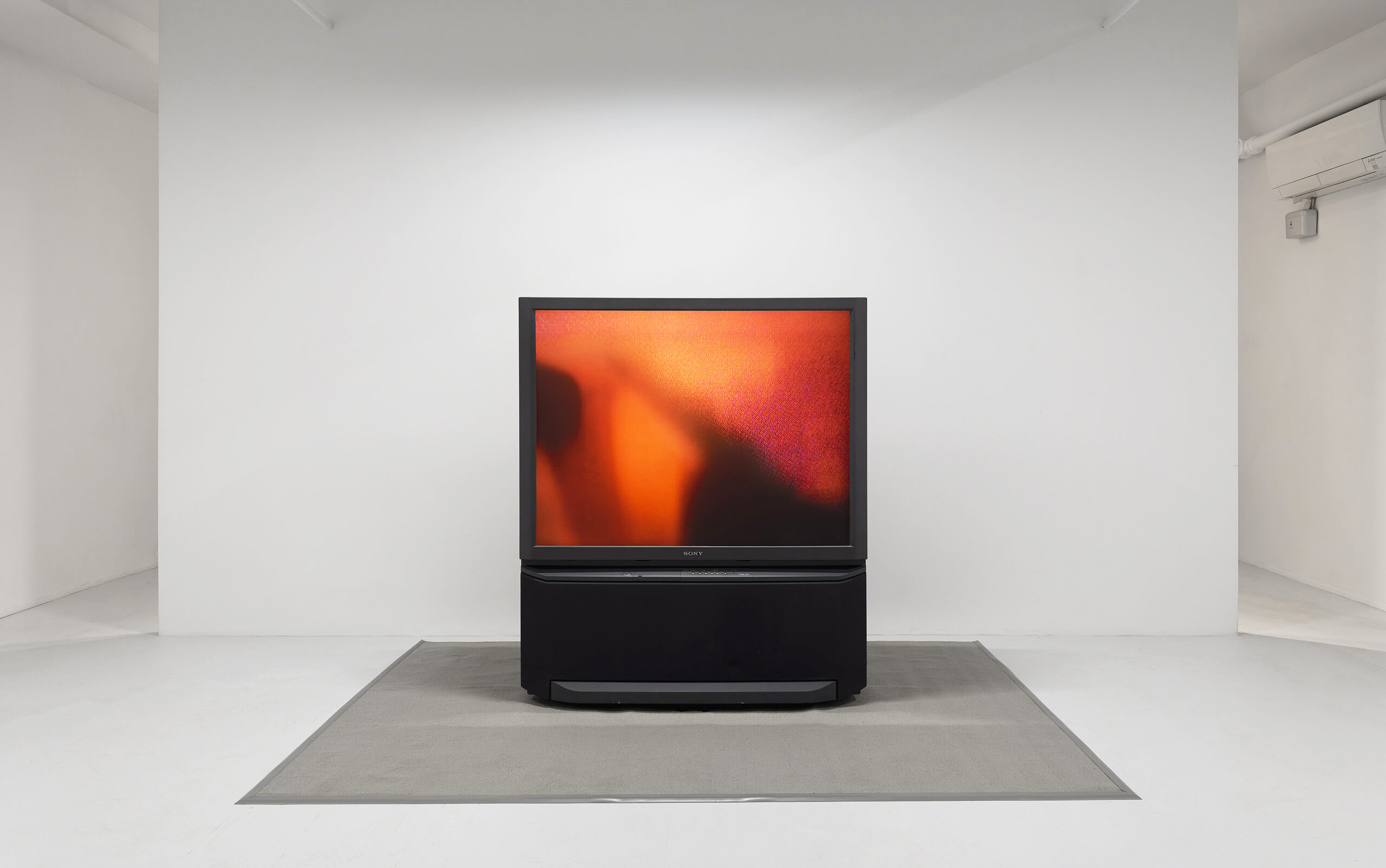
What challenges and opportunities do you face teaching through the lens of decoloniality?
Each class is an opportunity and a challenge in so many overlapping, contradictory and ever-changing ways, so it’s difficult to answer this question precisely. I hope to go beyond introducing students to artists, texts, guests and working methods that challenge the hegemonic structures that exist in moving images—a medium that is plagued with histories of supremacy, minstrelsy and colonial, classist, sexist gazes. I aim to cultivate a learning environment that encourages me and students to acknowledge the potential of our work to be collectively liberating, inspiring us to think critically, challenge conventional viewpoints and embrace the fluidity of interpretation to broaden our understanding of the world.
“I aim to cultivate a learning environment that encourages me and students to acknowledge the potential of our work to be collectively liberating.”
What’s the most important thing you hope students will learn in your classes?
I hope that students walk away from any class with an ability to view ideas through multiple vantage points and to question and challenge what they might take for granted. For this to work, it is imperative for them to see themselves and their peers as producers of knowledge. It is essential that everyone in the room contributes to the conversation and that everyone is honest and vulnerable. A successful class is one where students find new strategies to exploit the tools at their disposal while feeling empowered to apply themselves genuinely.
—interview by Simone Solondz
April 24, 2023
